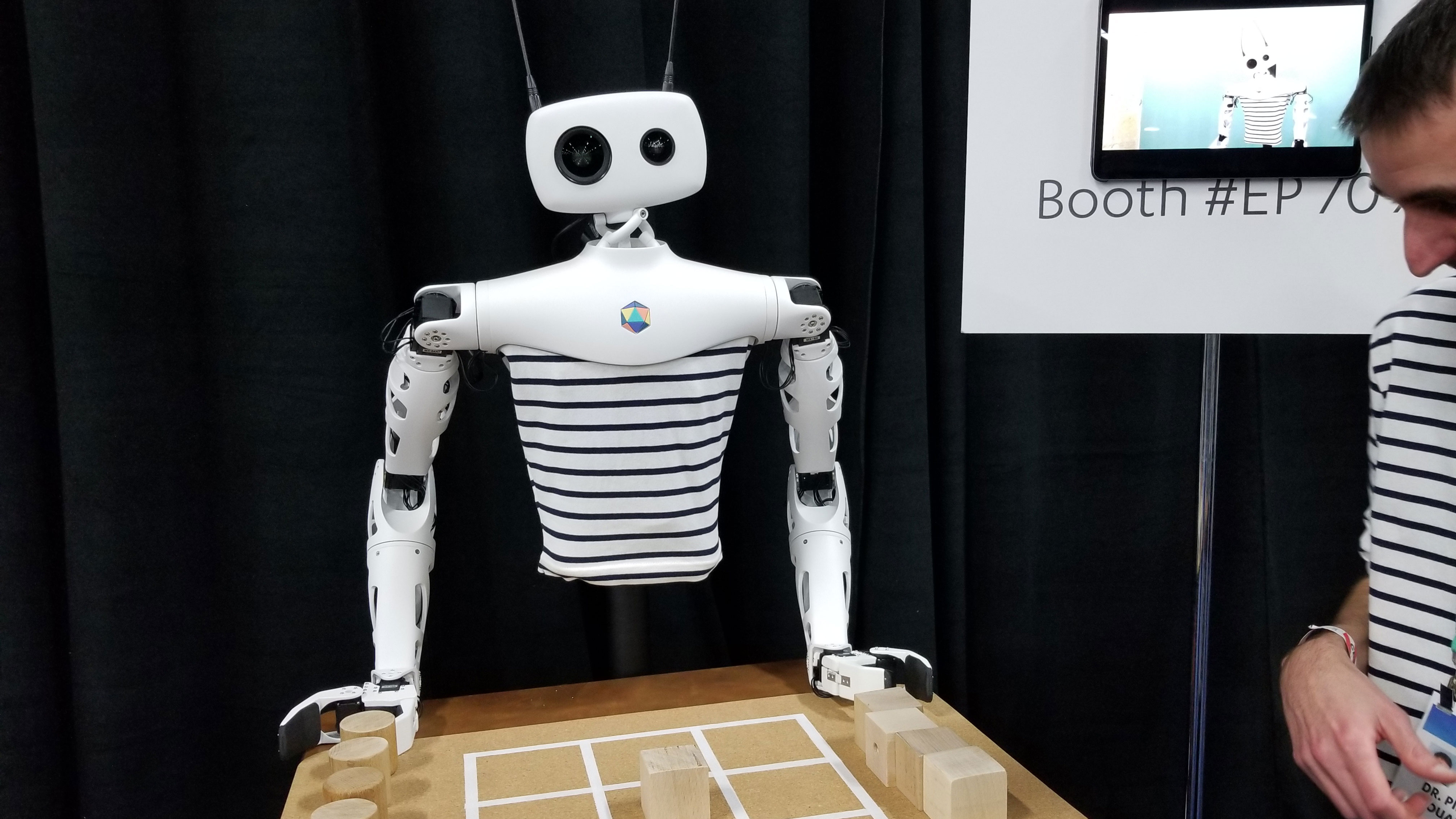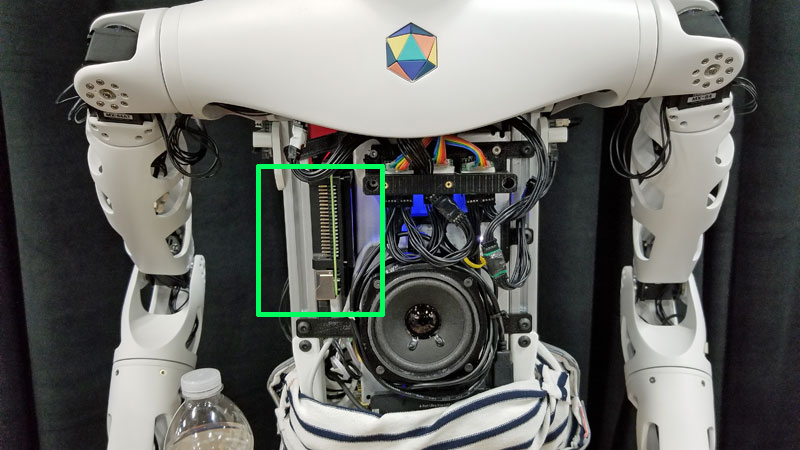Raspberry Pi-Powered Reachy Robot Can Grab Almost Anything, Including Your Heart
Up for pre-order now, the open-source robot can pick up and move objects and even display emotions.
Raspberry Pi boards have been used to power all kinds of robots, from tiny toy cars to industrial-strength robot arms, but Reachy is likely one of the most complex. The product of French start-up Pollen Robotics, Reachy is the size of a human torso, with a rotating, expressive head and two highly articulated arms that end in pincer hands. The robot is powerful enough to lift objects that weight up to 500 grams and versatile enough to use AI, image and voice recognition to interact with the world.
What's powering this $17,000 robot? Tucked under its cloth T-shirt are a host of internal components, including the single-board computer which runs the show, a Raspberry Pi 4 B with 2GB of RAM. It runs the Pi's official Raspbian OS while using an open-source Python library to control the robot. In addition to the Raspberry Pi 4 B, the Reachy has a Google Coral AI accelerator and a series of small modules from Luos Robotics.
The chest cavity also includes a speaker and microphone for doing voice recognition / speech and a power supply. The head, which had turn a full 180 degrees, has two camera eyes it can use to do facial and object detection, although only one of the eyes was connected on the demo unit. Pollen Robotics Co-Founder Pierre Rouanet told us that the sensors are standard Raspberry Pi camera modules with different fields of view. A pair of antennae on top of the head, which can move and tilt via motors, are used to make the robot look more emotionally expressive.
Here are CES, we had a chance to see Reachy in action as it used those pincers to pick up a series of blocks and to play itself in a game of Tic Tac Toe. The arms themselves are composed of seven different servo motors, which allow for seven degrees of freedom, a level of movement so good that the arm is also being considered as potential prosthetic.
Pollen Robotics has a YouTube video showing a number of potential uses for Reachy, including cooking, including grabbing coffee (literally) or handing objects to shoppers at a store.
The open-source robot is available for pre-order now on the company's website, where costs $17,000 for a complete unit, $9,000 for just a single arm or $11,000 for one arm and the head. At those prices, along with the company's intention to deliver only 15 units in the first round, the Reachy is targeted toward businesses that want a robot to use for hospitality in public places such as stores or hotels.
However, Pollen also wants developers to use Reachy and come up with new use cases for its technology. The company has even launched its own forums to encourage discussion among developers and users, though there are only a handful of test units in the wild right now.
Get Tom's Hardware's best news and in-depth reviews, straight to your inbox.
With such a high price and limited production, Reachy is clearly a niche product, but an important one, because shows what's possible when dedicated people push the Raspberry Pi to its limits.
Avram Piltch is Managing Editor: Special Projects. When he's not playing with the latest gadgets at work or putting on VR helmets at trade shows, you'll find him rooting his phone, taking apart his PC, or coding plugins. With his technical knowledge and passion for testing, Avram developed many real-world benchmarks, including our laptop battery test.



